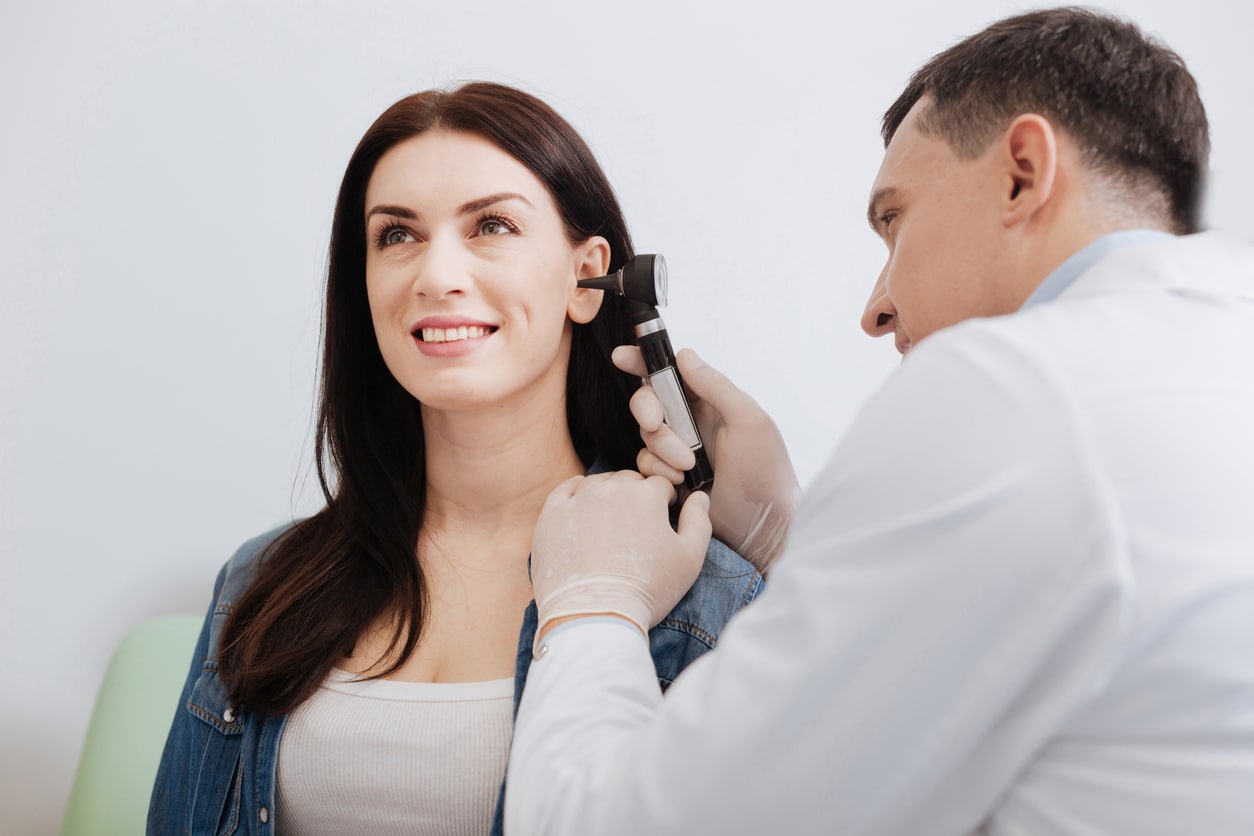Muffled hearing can feel like you’re trying to listen to a Leonard E. Merrell Center concert through a dense wall. One common cause of temporarily muffled hearing is earwax. Let’s take a look at how earwax muffles hearing and how you can remove it safely.
How Can Earwax Cause Muffled Hearing?

When you plug your ears with your fingers or earplugs, the barrier blocks sound waves and creates a muffled effect. Similarly, when earwax builds up in your ear canal, it can obstruct sound from reaching your eardrum, leading to the same muffled sensation.
Do Many People Have Earwax Blockages?
Earwax blockage is relatively common with approximately 10% of children and 5% of adults experiencing it. A few things that can increase your likelihood of blockage include frequently wearing hearing aids or earplugs, having excess ear hair, putting cotton swabs in your ear or having skin conditions like eczema.
What Are My Treatment Options?
If you suspect earwax might be the cause behind your muffled hearing, a hearing specialist can quickly confirm it with an ear exam. If a blockage is present, the specialist will likely use safe and effective methods to remove the wax, including one or more of the following tools and techniques:
- Forceps
- Cerumen (earwax) spoon
- Suction
- Irrigation
Whichever option your specialist uses, you can expect a quick and pain-free removal.
Can You Remove Earwax at Home?
Before attempting to remove earwax at home, consult a professional. If earwax blockages are a recurring issue, a specialist might recommend safe at-home methods like gentle irrigation, earwax-softening drops or suction with a bulb syringe. These methods can be effective and safe when used correctly.
Can At-Home Earwax Removal Harm My Hearing?
Improper earwax removal is ineffective and potentially damaging to your hearing. For safe removal, keep these tips in mind:
- Avoid using cotton swabs or other small objects to clean your ears. While it might be tempting, these tools can tear the delicate eardrum, leading to pain, greater blockage, infections or further hearing problems.
- Steer clear of ear candling, which is both ineffective and potentially harmful.
If you’re struggling with muffled hearing, don’t try to handle it on your own. Contact Davies Institute for Speech & Hearing to schedule an appointment with a hearing specialist for safe diagnosis and treatment.